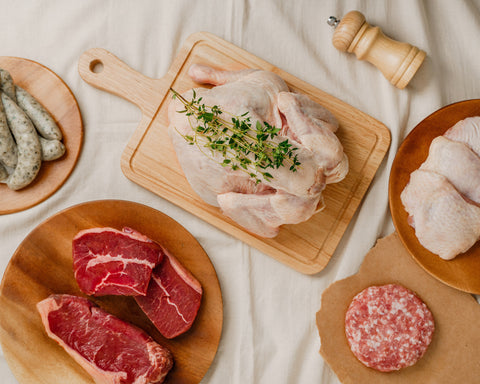Is Organic Food Really Better for Us?
One of the big questions regarding organic food is ‘is it really better for us?’. The answer is, it depends!
Many people will say that the nutritional composition of organic fruit and vegetables are superior to that of conventionally grown fruit and veg. While it has been shown that plants grown in healthier soil, which is associated more with organic and permaculture farming, do hold more nutrients, the amount is usually negligible when compared to their conventionally grown counterparts.

However, organically grown fruit and veg significantly outperform their commercial counterparts when it comes to pesticide/herbicide/chemical residues. In a recent study, it was shown that organic fruit and vegetables were shown to have 70-90% LESS chemical residues on the produce themselves and in the topsoil. The data showed that conventional farming had up to 16 different types of pesticide residue and higher contents than organic farms. The organic farms had significantly less contents of residues but still up to 5 different types were found. Most of these residues came from previous farming techniques, where chemicals can stay in the soil long after a farm moves to an organic approach.
Apart from the significant environmental effects these pesticides cause, the other obvious issue is the exposure to these chemicals in your food and the effect on your health. There is more and more data showing that exposure to chemicals like glyphosate (found in the highest concentrations of the residues above) have profound health effects on our bodies. Often with things like pesticides ‘the dose makes the poison’ so limiting exposure to these by choosing organic is the best way to go.
Ok, so we now know that it’s best to choose organic fruit and veg for the health of ourselves and the planet but what about organic meat and eggs?

Again, the answer is it depends! One thing we need to bring awareness to is the ‘green-washing’ and sometimes deception of supposed organic farming practices when it comes to meat and eggs. Just because something is labelled as “Organic Eggs” it doesn’t necessarily mean that it’s healthier for you or for the animal.
For example, if a farm keeps laying hens in a cage for their whole life and feeds them a diet of organic soy, is this really better? You might not get the exposure to pesticides BUT what you are getting are eggs from an unhealthy, stressed bird that can’t positively influence the environment due to its living conditions and fed an unnatural and inflammatory diet of soy.

The same goes for cows that are fed a diet of organic grains. Yes, it’s still considered organic beef but it’s not helping the environment, the animal or potentially, the consumer. This is where it becomes important to know where your food comes from.
We recommend developing a relationship with your local farm or supplier and finding out how the animals are raised and what the animals are fed. In our opinion, pasture-raised animals are your best bet for healthy food and environmentally friendly farming practices.



